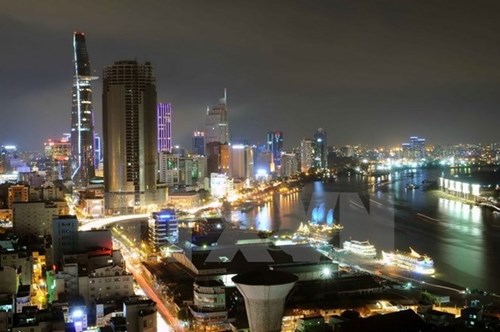December 27, 2017 | 20:36 (GMT+7)
Ho Chi Minh City developed into major urban region in Southeast Asia
The Prime Minister has approved an adjustment plan to build Ho Chi Minh City into a major urban region with dynamic and sustainable development, playing a crucial role in Southeast Asia’s development.
Covering 30,404 square kilometers, the region will include the whole administrative boundaries of Ho Chi Minh City and seven neighboring localities, namely Ba Ria-Vung Tau, Binh Duong, Binh Phuoc, Tay Ninh, Long An, Dong Nai and Tien Giang.
    |
 |
| A corner of Ho Chi Minh City |
Its population is forecast to reach about 24-25 million people by 2030, including 18-19 million in urban areas and 6-7 million in rural areas. The region will have about 18-19 million workers.
The region is expected to become a center of economics, trade, finance, scientific research and services, hi-tech industry and agriculture, culture, education-training and health care in the country and Southeast Asia.
It will be developed towards sustainability and climate change adaptation with modern technical infrastructure, with Ho Chi Minh City an economic center.
The region is planned as an international trade center of Vietnam, particularly the south, as well as a gateway to connect key economic regions in the south, the Mekong Delta, the Central Highlands and the south central coastal region.
Source: VNA